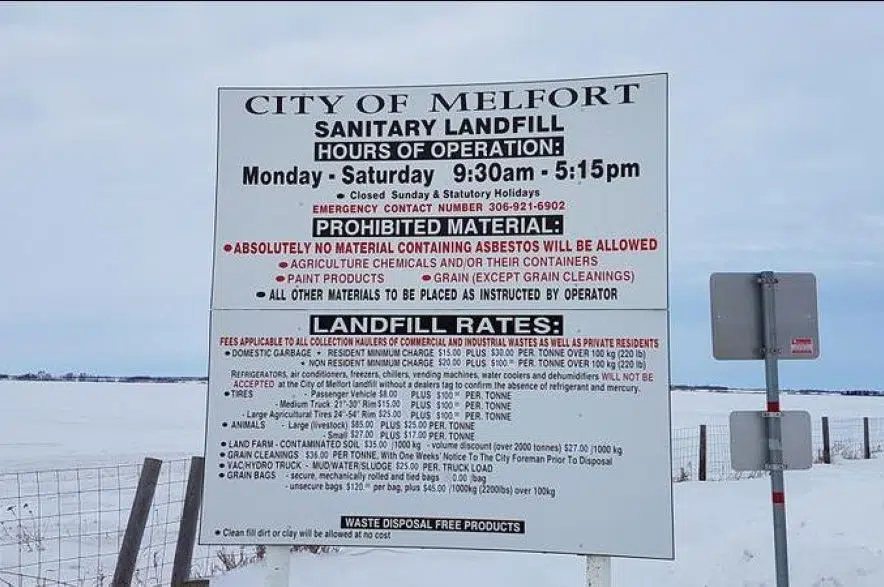By Doug Lett
There are dozens of communities in Saskatchewan struggling with the cost of decommissioning old landfills.
“That’s pretty much the No. 1 issue for many communities,” said Bryan Matheson, who chairs the environment committee for the Saskatchewan Urban Municipalities Association (SUMA).
“And some of them are simply going to be saying, ‘We can’t do it,’ ” added Matheson, who’s also the mayor of Lumsden.
In recent years, the province has upgraded the requirements for landfills in order to better protect the environment. The long-term plan is also to reduce the number of landfills. A 2019 report said “there is a solid waste management crisis in Saskatchewan,” with the highest number of landfills in the country.
But it’s also meant many older landfills need to be decommissioned, and regardless of size, the cost of decommissioning can easily hit several hundred thousand dollars.
“If you had a small community with 800 people, (which) is declining in size, where do you get that money?” Matheson asked.
According to the province’s Solid Waste Management Strategy, the number of municipal landfills in the province is dropping, from around 500 in 2015 to 186 in 2020.
There was a federal-provincial grant to help with decommissioning, said Matheson, but the problem is that a lot of communities have not qualified for it. The province said 73 have been approved.
“Now, those that are successful in getting a grant have about 70 per cent of it paid for, but they’re still struggling to get the other 30 per cent, depending on the size of the community,” he said.
Matheson pointed to his own town of Lumsden. He said in 2017 the town was told its landfill would be good for decades. However, in 2021 it were told by the province the landfill would have to be shut down.
“We argued. I argued,” he said.
But now the town is faced with decommissioning the landfill at a cost of roughly $800,000. He said Lumsden was fortunate to get a federal-provincial grant, which reduces the town’s cost to around $150,000.
“But then we also have to build a transfer station. And that is another big number. And there’s no grants for that,” he said. “And so we’re going to have to come up with a million dollars. And we have $30,000 put away.”
SUMA is calling for the province to bring in 25-year interest-free loans to help communities with the cost. A resolution to this year’s annual convention also calls for senior governments to come up with a new program to help pay for it.
In a statement to northeastNOW, the provincial government said the budgets of municipalities need to consider short-, medium- and long-term investments.
“The Government of Saskatchewan already provides financial support to municipalities in a number of ways to assist with necessary infrastructure,” it said, including municipal revenue-sharing, the municipal financing corporation, the federal-provincial Investing in Canada Infrastructure Program, and the Canada Community Building Fund.
Matheson said SUMA plans to continue pushing for more help.
“We’re not going to stop lobbying,” he said.











